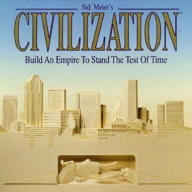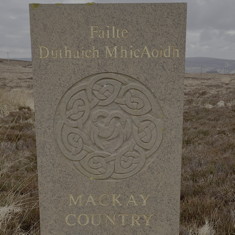Civ V Reading List
June 6th, 2012
Civilization did not spring fully conceived from the mind of Sid Meier back in 1991. It was an extension of his previous work such as Pirates! and more directly Railroad Tycoon. It was also influenced by the board game Civilization, it’s successors such as Advanced Civilization and to a lessor extent History of the World. Other influences came from the literary world. As Sid Meier’s Civilization game has evolved, there are a number of books that provide insight into how the game and AI function:
- Sun Tzu, “The Art of War“
- Niccolo Machiavelli, “The Prince“
- Carl von Clausewitz, “On War“
- Jared Diamond, “Guns, Germs, and Steel“
Several works of fiction likely influenced the various Civ games, Frank Herbert in particular definitely influenced Alpha Centauri.
- Frank Herbert, “Dune“
More science fiction books are listed as inspiration in Wikipedia. Absent are a few of the many hell planet or death world stories such as those by Harry Harrison. Also absent is Chung Kuo which is inferior to Dune, but fits the Civ game ethos of remaking the planet and imposing order and socio-economic and environmental policies on a planetary scale. That series may provide some insight but I can’t recommend reading the entire series, stop after the first two original books. Apparently it is being reworked and republished and expanded. I always thought the Hive was obviously influenced by Chung Kuo, complete with Chinese leader.
I have a theory that every Fantasy writer wants to be J. R. R. Tolkien and every Science Fiction writer wants to be Frank Herbert, this along with the ease of getting an advance on a sequel is why there are far too many substandard world changing, generational, multi-book tales in genre fiction. I’m now turned off by anything that is the first of a trilogy or book 5 of 9 in the bookstore. Usually the story drags on way too long, the quality of writing can not be maintained, and they are vastly inferior to the series they try to emulate which came before them. I also think the writers in a lot of cases, just can’t develop and sell a new original idea, so they just keep revisiting the same old, same old, in order to get paid.
Wikipedia lists a bunch more future histories which may have influenced Alpha Centauri they certainly influenced each other. The sub-genre of SF known as alternate history may be more to Civ fans liking. I think it is long overdue for Alpha Centauri to get a proper sequel. Apparently EA owns the rights. It doesn’t run at all on the newest version of Mac OS X, but I also own a copy for Windows 98, not sure how well that will run on the modern Microsoft operating systems, it was unofficially patched as recently as 2010 according to research for this blog post. Alpha Centauri is still in print, and is compatible with “Windows XP, Windows Vista, Windows 7” if you’ve never played it, do, it is very affordable. I already own two copies and the expansion, wonder if I can get it to run in emulation or on my old G4 tower. Alas most of my life is in storage and I’m not sure which box those old CD-ROMs and DVDs are in.
It’s more than a game, it’s a lifestyle
Maybe I should never feel bad again about spending too much time on Sid Meier’s Civilization after a ten year long game of Civ II makes the news on ArsTechnica. Civ V is definitely missing features that were in previous versions of the game and I still don’t know why they left out environmental concerns for the first time ever. I guess most players don’t worry about the environment and have no qualms about nuking their neighbors. One thing I like about the Sid games is they can be played differently. If you have ten years to devote to a single game, perhaps reading five books isn’t much work at all. If you want to win at all costs, why not actually study thought leaders? Maybe if more Civ players read Jared Diamond or say the English Patient, people would be less proud about earning the “I can has nukes?” badge.
If you have thoughts on books or books influencing video games you can leave a comment below.
This entry was originaly posted on , it was last edited on and is filed under: DIY, Hobbies, & Interests and tagged: Literature, Sid Meier's Civilization, Video Games.





I don’t really share your analysis of these being influences or shedding useful insight on the functioning of Civ. For one, you don’t really explain in what sense Machiavelli et al. can actually be said to have any manifest influence in the game — as someone with a background in intellectual history I am always inclined to be sceptical of people listing “greats” like these without pointing out specific influences. Particularly, Machiavelli’s advice in The Prince, as many scholars have remarked, is often not actually that good, and is in many places self-contradictory. His defining place in the history of Western political thought is earned not by being an actually useful manual, but by rejecting ideal philosophy in favour of ‘realistic’ analysis. I’m also in general a bit sceptical of Jared Diamond’s place here, since all he does is rehash geopolitical and historiographical aphorisms that were formulated in the early 20th century, without any great insight of his own (and he often veers into very dodgy territory even there, such as his discussion of the geopolitics of East Asia).
The Hives seems to me to be a fairly straightforward combination of the venerable Western stereotypes of oriental mysticism and oriental despotism; I don’t see why Chung Kuo would have been an influence. Civ is a great series of games, but it gleefully adopts a naive and Whiggish understanding of history while simultaneously affirming Eurocentric stereotypes. I don’t think it should be treated as some sort of intellectual synthesis of the insights of great thinkers.
First of all thanks for the comment. My good comment to spam ratio like most blogs is skewed the wrong way.
Before I try to answer your questions, let me ask you, what other AAA video game series can you think of where it is even possible to suggest a link between important thinkers and how the game functions?
Odd that you would pick out Machiavelli when he has been directly quoted in Alpha Centauri. I think he is perhaps the most relevant to Civ V, because of the addition of the City States. Machiavelli wrote specifically and based his world view and politics on the city state period of Italian history. Obviously in the game politics is simplified, but the addition of small city states like Florence to the game after 20+ years surely is an acknowledgement of their impact on world history. The board game “History of the World” has long included these smaller empires as basically one turn bonuses.
As for not pointing out specific influences, well there are two parts to answering that, one it was a short blog post that was an extension of discussions on an online forum, two I’ve previously written many other posts on the Civilization series of video games and often remarked on how elements of the game and my approach to the game were influenced by books I’ve read, specifically those listed above. Are we not, at least in part, the sum of our influences?
I also acknowledge in my post that I understand game design decisions are not always made for realism, but are made to make the game fun, accessible, and in the case of the DLC + expansion model, profitable. For the longest time folks complained about Civ V online because it left out features in Civ IV, but I always saw Civ V as a foundation on which more can be built. Espionage and religion are being added back into the game, two major factors affecting Machiavelli’s world view.
Skipping ahead to Jared Diamond, one of the most shocking changes to Civ V in my mind was the removal from the game of environmental damage and particular human civilization’s ability to negatively impact their environment. Back in 1991 Sid Meier was probably ahead of the curve in implementing global warming and environmental cleanup into a video game world. Now after books like Mr. Diamond’s and numerous environmental disasters and continuing ongoing debate about global warming and whether it is irreversible, the designers of Civ V removed it from the game, I can now build as many coal factories as possible, as many mines as possible, as large of population as possible, and there is no negative effect except on general happiness. Surely Machiavelli has something to say about occasionally placating the lowest classes, “keep them doped on religion, sex, and TV”.
None of the other books consider why the Mayans or the Incas or the Polynesians didn’t dominate world history, where as smaller European nations like England, Portugal, and Spain did. In the game you can see how giving the Polynesians access to iron could have affected human history. The title alone drives home the importance of research, particularly research with a military application such as Guns and Steel. Germs like other environmental factors are just not present in Civ V. Other versions of Civ and the board game predecessor most definitely have outbreaks of plague. In fact using disease in war was a well documented siege technique, one Machiavelli was surely aware of if he did not write explicitly about it. It has been a number of years since I read “The Prince”.
As for the other authors, “Dune” and Frank Herbert are specifically mentioned as being influences on the design of Sid Meier’s Alpha Centauri. His writing of “Dune” was influenced by the concept of desertification, a very real and often human caused environmental problem still facing the world. He extrapolated desertification to a planetary scale, but Dune is about so much more. It is very Machiavellian or at least characters in the book could be described as Machiavellian.
“Chung Kuo” I disappointingly finished in its original entirety, as people compared it favorably to “Dune”, but rather than read 5+, 300+ page science fiction books, times two. I think people who are interested in concepts like desertification, Jihad, religious fanaticism, charismatic leaders, nepotism, philosophy, etc. and how they have had a profound impact on human history and will likely continue to influence future human history could do worse a lot worse than reading “Dune”.
In the world of miniature wargaming, Clausewitz and his concept of ‘friction’ are specifically listed as major influence on at least one company’s game design. I think in view of Sid Meier’s Civilization Clausewitz idea that war was a necessary extension of political policy is overwhelming obvious in the way some people play the game. Their entire civilization exists for them to wage war on their neighbors, they don’t even bother to exhaust peaceful, possibly economic options. Their civilization is one big war machine. U.S. policy, in particular those who studied at West Point, is heavily influenced by Clausewitz, Colin Powell was promoting a book on late night television the other day, and his summation of his philosophy seemed to be a summation of Clausewitzian idea, that war had to always be the final option to enforcing political policy after negotiation and economic sanctions had failed. This was specifically in response to a question about going to war against Iraq on the Jon Stewart show.
Finally Sun Tzu, if you’ve played the game as China, or have played other wargames that are grid/hex based, even Chess, Go, or Chinese Checkers, Sun Tzu’s influence can still be witnessed. There is no way in Civ V to set fire to a field and have it sweep into an enemy position, but the idea of delaying conflict, giving ground while marshaling forces, and ‘total war’ being a last resort, these ideas can be seen and applied in Civ V, even if the invention of planes, trains, and automobiles wasn’t anticipated by the author(s) of “The Art of War”.
So thanks again for stopping by, there are some specific examples of how various authors and their ideas are present in the Sid Meier’s Civilization franchise. Alas just reading books won’t allow you to dominate every game, it is definitely difficult to triumph at the highest difficulty levels, due to the AI being given a big head start over your own wandering tribe.
Remember it is only a game and try to have fun.
I certainly do have fun with it; I just disagree with your analysis. My position is that it is possible to read links with famous thinkers into any game series (AAA or otherwise). And this is not surprising — games form part of the overall cultural setting of our life, and culture is historically situated. But there is a difference between claiming a connection (which can be insightful even if entirely coincidental) and claiming a causative historical influence. With Civ, of course, the temptation to draw the latter is much greater because it’s an ostensibly more “intellectual” premise for a game. I wanted to know what you consider the specific influences of these books on Civ, which you’ve answered to some extent. Nonetheless, I still don’t find that this is convincing. To tackle what you’ve said above:
“None of the other books consider why the Mayans or the Incas or the Polynesians didn’t dominate world history, where as smaller European nations like England, Portugal, and Spain did.” — Plenty of people have asked questions like this throughout history, even if they didn’t know about Mayans and Incans and Polynesians. I’d direct you to Botero’s “The Greatness of Cities” (1588 I believe) or indeed the opening chapters of Machiavelli’s Discourses on Livy. The concept that the greatness of states is caused by geography and environment is also at the heart of Henri duc de Rohan’s “On the Interest of the Princes and States of Christendom”. You can even go back to Book II of Dante’s “De Monarchia” (probably written around 1313), where he considers why it was the Romans who established an empire and not anyone else. It’s certainly not a contemporary invention.
On the other hand I won’t argue with the proposition that Diamond may have been an important influence on the game mechanics; in fact I’m inclined to agree with you. My comment on him was more of a misunderstanding of what you were proposing his influence to be, but your clarification above makes it more obvious.
However your point about what Machiavelli “must have said” is interesting, because it does suggest to me that you’re relying on a common understanding of what these thinkers are supposed to have contributed to intellectual history rather than what they actually did. I agree that Civ is influenced by our cultural understanding of what “real” world history is all about, and within this our image of Machiavelli has a particular role, but I take issue with the suggestion that Nick’s ideas actually concretely influenced the game mechanics.
As for quoting Machiavelli, plenty of people are quoted without their work being read (Machiavelli being one of the usual culprits) so I wouldn’t make too much of that. They quote a lot of other people too, after all :P
My problem isn’t that Civ is interesting when considered in this light, it’s the imputation of specific links with historical thinkers which I think aren’t there. I propose that the loci you’ve pointed out are simply elements of evolving popular perception of history, rather than being specific influences from particular authors. The reason I’m posting is because I find the analysis you’ve proposed dangerous, because it reduces these thinkers to a “perennial” collection of common-sense aphorisms and submerges their distinctive contribution to real intellectual history. I love Civ and especially SMAC, but I don’t think they stand in a direct line of intellectual history like this — instead, they simply reflect the historically situated worldview that we have, with all its diverse influences. My point is that it stands within a much more general, popular discourse, and shouldn’t be read as being “Machiavellian” or “Clausewitzian” or anything else. There was a good (if critical) academic article about Civ that was published ages ago and, I seem to recall, was pilloried in the Civ player community — but I’m inclined to agree with its conclusion that Civ simply reflects modern Western discourses on civilizations.
I think we mostly agree with each other, or we wouldn’t have read the same books and written such lengthy pieces.
One aspect of Sid Meier’s games that I’ve come to admire is how they work as games, but also work as a gateway. Maybe not many people went out and read Machiavelli or Kierkegaard after playing SMAC, but I did. Most games, particularly video games pander to the lowest common denominator.
“I can has nukes?”
However this game rewards and requires repeated playings. Reflection on where the game differs from reality and human history are part of its appeal. Askia isn’t a well known historical figure, certainly not when compared to George Washington, yet in Civ V he is given equal billing and the player who is interested can take the time to learn more.
It saddens me a little that Gandhi’s pacifism isn’t better reflected in Civ V. SMAC did a much better job of personifying ideals and creating an emotional connection to the characters represented in the game. Civ V’s strength lies in the foundation it provides. Religion, espionage, Korea, the Vikings, the Huns, they apparently can all be added in later. Being connected to Steam and having access to all that player data is a boon for game balancers. The data can also be used by marketers to figure out how to make money with a turn based strategy game, instead of yet another game where the object is to kill as many zombies as possible.
I do think the books I’ve mentioned provide context and insight into the game. Whether every member of the design team was required to read all five, I doubt it. People are lazy. They go to Google or the Wikipedia and if isn’t in there, it didn’t happen or it isn’t important. There are some few who will take the time to learn more and I think Civ V attracts those type of people so rather than type out, “you should read Machiavelli” over and over, I decided to create a blog post and I thought hard about which five books that I’ve actually read* would perhaps provide the most additional insight into Civ V?
I’ve never read all of Clausewitz, I bought a book that analyzed and featured excerpts from “On War” and reflected on the huge affect it has had on the world since publication. It was part of a series on books that changed the world or some such. I’ve read enough military historians who reference it to have a pretty good idea of his key points as they can potentially be applied to Civ V.
I totally agree that people said some of what Jared Diamond wrote prior to his book coming out, but he said it all in one book or now two books if you count “Collapse”. And unlike “On War” or “The Prince” or “Hagakure” his book was widely read upon publication, a New York Times best seller. It was also read by a wide variety of people not just intellectuals or historians. He did pull together a lot of data from various fields and sources, so he may have been standing on the shoulders of giants, but given the recent success of his books, the relative accessibility, and how it deals with the rise and fall of Civilizations other than say Rome, it made my top 5 list. It also covers environmental conditions and there effects on the rise and fall of civilizations, not just the effect of great generals and their armies.
Top X lists go over big in the blogosphere. I dutifully linked to Amazon showing that every book was in print and easily available, any decent local library should have them all. The complete text of “On War” is apparently available online, but I prefer reading books.
I also agree about quoting people without reading the entire book or even the entire chapter. Something everyone is guilty of at one time or another. I think Nietzsche is perhaps the most often quoted yet unread writer of the last 200 or so years.
When I wrote the blog post it wasn’t intended to be the five books that most influenced the design of Sid Meier’s Civilization. It was a list of five books that I thought would provide greater insight into key issues explored in this series of Sid Meier’s games. I wrote it on a laptop and although I have Internet access I didn’t go through the effort of rereading the actual books and providing direct references to the original text. Machiavelli like Nietzsche is accused of advocating this or that, but I’m pretty sure he does have something to say on placating the masses in “The Prince” even if it wasn’t “keep them doped on religion, sex, and tv”, but I think that John Lennon quotation sums things up nicely.
;-)
That does make more sense — I misunderstood what you were getting at. Now you’ve explained it more fully, I do agree with what you’re saying. To elucidate what I was trying to caution against, though (and for the benefit of anyone who might come across this discussion), I do want to leave this paragraph of one of my favourite articles, one by Quentin Skinner called “Meaning and Understanding in the History of Ideas”, which I would strongly recommend checking out regardless:
The main version, however, of this form of the mythology of doctrines
consists of supplying the classic theorists with doctrines which are
agreed to be proper to their subject, but which they unaccountably failed
to discuss. Sometimes this takes the form of extrapolating from what
these great figures said in such a way as to supply them with suitable
beliefs. Thomas Aquinas may not have pronounced on the subject of
‘foolish “civil disobedience”’, but we can be sure that ‘he would not
have approved’.54 Marsilius of Padua would certainly have approved of
democracy, since ‘the sovereignty he espoused pertained to the people’.55
But Richard Hooker ‘would not be entirely happy’, since ‘his own noble,
religious and spacious conception of law has been desiccated into
the mere fiat of popular will’.56 Such exercises may seem merely quaint,
but they could always have a more sinister undertone, as these examples
may perhaps suggest: a means to fix one’s own prejudices onto the
most charismatic names under the guise of innocuous historical speculation.
History then indeed becomes a pack of tricks we play on the
dead.